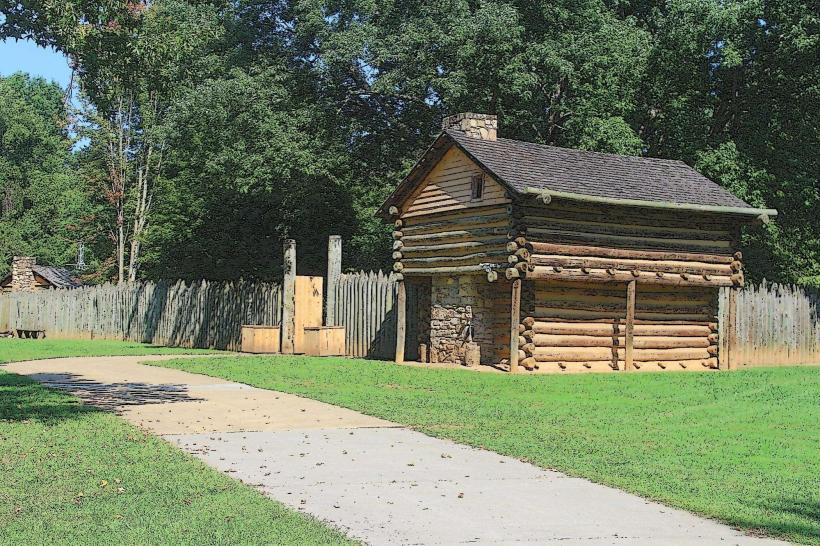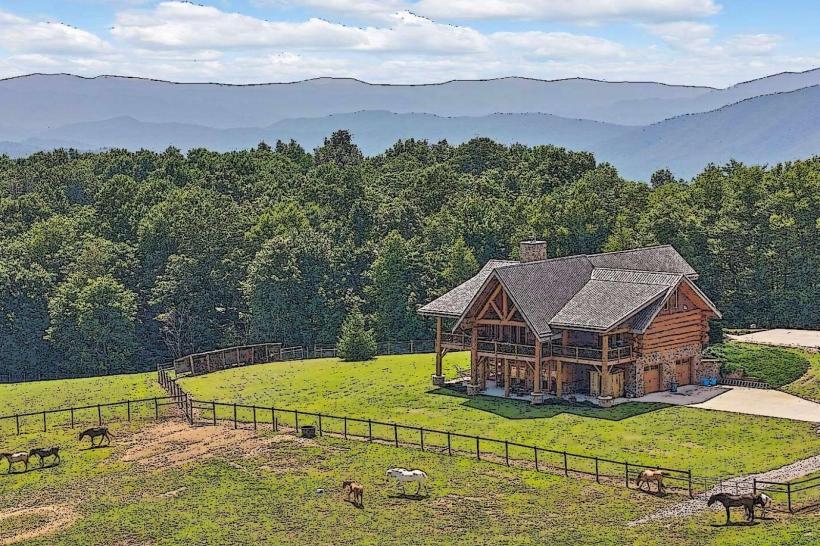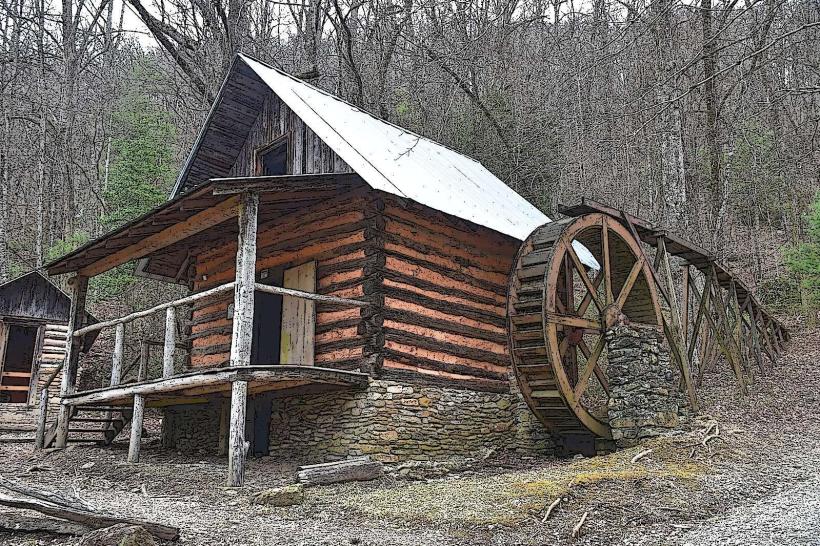Information
Landmark: Appalachian museums and heritage sitesCity: Johnson City
Country: USA Tennessee
Continent: North America
Appalachian museums and heritage sites, Johnson City, USA Tennessee, North America
The Johnson City and Tri-Cities Region of northeastern Tennessee-encompassing Johnson City, Kingsport, and Bristol-is a culturally rich area deeply rooted in Appalachian heritage. This region offers an array of museums, historic homes, living history centers, and interpretive sites that reflect the traditions, struggles, music, and innovations of the Southern Appalachian people.
Below is a detailed guide to the most important Appalachian museums and heritage sites in the Tri-Cities area:
1. Tipton-Haynes State Historic Site (Johnson City)
Overview: This preserved homestead and farm complex dates back to the late 1700s and includes eleven historic buildings set on 45 acres. It was the home of Colonel John Tipton, a Revolutionary War officer and early Tennessee political leader.
Features:
1784 log home, smokehouse, slave cabin, spring house, and schoolhouse.
Interpretive exhibits on early frontier life and the State of Franklin (a short-lived attempt to form an independent state in what is now East Tennessee).
Nature trails and picnic areas that enhance the immersive historical environment.
Relevance: One of the best-preserved frontier-era homesteads in Tennessee; ideal for understanding 18th- and 19th-century Appalachian agrarian life.
2. Rocky Mount State Historic Site (Piney Flats)
Overview: A living history museum that portrays life in 1791, when the site served as the first territorial capital of the Southwest Territory (precursor to Tennessee). Once the home of William Cobb, it was the official residence of Governor William Blount.
Features:
Costumed interpreters demonstrate 18th-century cooking, farming, and crafts.
Reconstructed homestead, gardens, and farm animals.
Seasonal events like candlelight Christmas tours and Harvest festivals.
Relevance: A vivid reenactment of the political and domestic life of early Appalachian settlers during the formative years of Tennessee.
3. Gray Fossil Site and Hands On! Discovery Center (Gray)
Overview: An extraordinary blend of natural history and hands-on learning. The site contains one of the richest Miocene-era fossil deposits in the eastern U.S., dated to around 5 million years ago.
Features:
Fossils of tapirs, mastodons, saber-toothed cats, alligators, and more.
Interactive science exhibits, paleontology lab viewing windows, and children’s discovery stations.
The adjacent museum features rotating exhibits on natural science, Appalachian geology, and ecology.
Relevance: Links the geological and biological history of Appalachia to its current cultural narrative. Engaging for all ages, combining science with local heritage.
4. Birthplace of Country Music Museum (Bristol)
Overview: An affiliate of the Smithsonian Institution, this world-class museum explores Bristol’s claim as the “Birthplace of Country Music”, where the legendary 1927 Bristol Sessions launched the commercial country music industry.
Features:
Permanent exhibits on early recording technology, Appalachian folk music, and key figures like the Carter Family and Jimmie Rodgers.
Listening stations, archival footage, and period artifacts.
A performance space for live music and lectures.
Relevance: Central to understanding how Appalachian music influenced the broader American musical landscape and how oral traditions were preserved through commercial recording.
5. Netherland Inn Museum (Kingsport)
Overview: The only registered site on the National Register of Historic Places that served as a boatyard, stagecoach inn, and family home. Built in the early 1800s along the Holston River.
Features:
Period-furnished rooms, blacksmith shop, and an original post office.
Schoolhouse and herb garden reflective of early frontier life.
Interpretive guides and school programs focused on commerce, travel, and early Tennessee settlements.
Relevance: Offers a window into 19th-century transportation and hospitality in Appalachian Tennessee during westward expansion.
6. Exchange Place Living History Farm (Kingsport)
Overview: A historic farm complex portraying antebellum life in Northeast Tennessee. Originally a plantation and trading post established in the early 1800s.
Features:
19th-century buildings including a barn, loom house, smokehouse, and log cabin.
Livestock including heritage breeds.
Hosts seasonal events like “Fall Folk Arts Festival” and “Spring Garden Fair” that highlight traditional Appalachian crafts, farming techniques, and music.
Relevance: Highlights the agricultural foundation of Appalachian society with a focus on self-sufficiency, folk culture, and community life.
7. Sycamore Shoals State Historic Park (Elizabethton)
Overview: A site of immense historical importance where frontiersmen assembled for the 1775 Watauga Association, often considered one of the first autonomous governments west of the Appalachians.
Features:
Fort Watauga replica and a state-of-the-art interpretive center.
Annual Liberty! outdoor drama, reenacting the Overmountain Men’s journey to the Battle of Kings Mountain.
Hiking trails and riverside walkways.
Relevance: Showcases the role of Appalachian pioneers in American independence and the development of democratic ideals.
8. Jonesborough – Tennessee’s Oldest Town
Overview: Established in 1779, Jonesborough is a preserved 18th-century town known as the Storytelling Capital of the World.
Notable Sites:
Chester Inn Museum: Offers exhibits on the town's role in regional politics, press, and social life.
International Storytelling Center: Home to the National Storytelling Festival, preserving oral Appalachian traditions.
Historic Main Street: Lined with preserved Federal and Victorian architecture, shops, galleries, and historical markers.
Relevance: Jonesborough embodies Appalachian community heritage, especially through the lens of storytelling, literature, and historic preservation.
9. Appalachian Heritage Museums and Trails
Carter Railroad Museum (ETSU, Johnson City): Displays railroad artifacts, model trains, and exhibits on rail transport’s role in Appalachian development.
Appalachian GhostWalks & Heritage Tours (multiple towns): Blends history, folklore, and storytelling to showcase mountain superstitions, settler tales, and Civil War-era history.
Overmountain Victory National Historic Trail: Traces the route of the Overmountain Men from northeast Tennessee through the Blue Ridge to Kings Mountain, offering markers and stops with historical interpretation.
Summary
The Johnson City and Tri-Cities region offers a remarkably dense network of Appalachian heritage centers, each highlighting a different thread of the region’s identity-from frontier politics and agrarian life to storytelling and early music recording. These museums and historic sites work collectively to preserve the diverse legacies of Appalachian culture-rugged independence, rich traditions, and enduring community values. For travelers and heritage tourists, this region is one of the most rewarding Appalachian cultural corridors in the United States.







